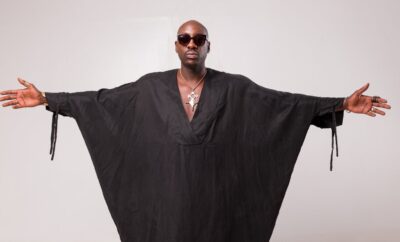Sauti Sol star Bien-Aimé Baraza has sparked discussion online after declaring that he now identifies as Gen Z, despite being born in 1987 and technically a millennial.
Generational Identity Beyond Birth Year
During an appearance on That Zed Podcast, Bien explained that for him, generational identity is less about birth year and more about mindset, career stage, and personal evolution. He emphasized that he feels “younger” and more aligned with Gen Z energy in this new chapter of his artistry.
“Being Gen Z isn’t about birth year but how you feel inside,” Bien said. “I’ve had two parts in my career. In the beginning, I was Sauti Sol—and now I am Bien. The Bien part of my career is still a toddler. And Sauti Sol is the millennial part. As Bien, I am Gen Z.”
Fan Reactions and Online Debate
His remarks have generated a mix of amusement, debate, and curiosity from fans. Some joked that Bien had “downloaded Gen Z software,” while others interpreted it as a meaningful reflection on how artists can reinvent themselves and embrace new creative phases, regardless of age.
Fluid Generational Labels
The discussion around Bien’s generational identity highlights a larger cultural trend: labels like “millennial” or “Gen Z” are becoming more fluid, increasingly defined by mindset, values, and approach to life rather than strictly by birth year.
Millennials vs. Gen Z
Bien’s perspective touches on the broader differences between millennials and Gen Z. Millennials, born roughly between 1981 and 1996, grew up alongside the internet and social media, balancing analog and digital experiences, often seen as adaptive, experience-driven, and collaborative. Gen Z, born approximately between 1997 and 2012, are fully immersed in digital life from birth, characterized as tech-savvy, socially conscious, expressive, and entrepreneurial.
Bien’s Artistic Reinvention
While Sauti Sol represents the collaborative and seasoned millennial phase of his career, “Bien” embodies the independent, innovative, and playful spirit that resonates with Gen Z culture. His declaration underscores the idea that generational identity can be shaped as much by attitude and artistic expression as by chronological age.

